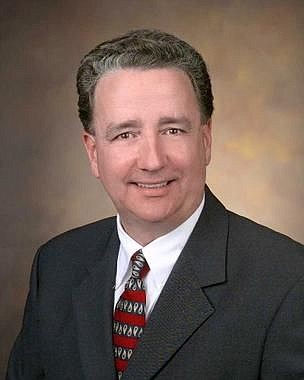
For anyone who thought City Council might be voting soon on the pension issue, Bill Gulliford made it clear that wasn’t going to happen.
“We are nowhere close to coming to an agreement on the agreement itself. We are so far away from any kind of voting,” Gulliford said Tuesday before the first meeting of a committee formed to study a proposal for JEA to borrow $120 million to help reduce the city’s $1.6 billion unfunded pension liability.
He predicted the process of evaluating the aspects of an agreement could take as long as eight months.
“This committee is going to attempt to come up with what we think is a reasonable agreement,” Gulliford said.
A large group from the International Brotherhood of Electrical Workers attended the meeting to register concerns about JEA’s proposal to transition its employees from the city pension plan to an in-house plan.
The pension change is included in a proposed interlocal agreement between the city and the utility approved last week by JEA’s Finance & Audit Committee. The plan is scheduled to be considered by the full JEA board Feb. 17.
Gulliford said any changes in JEA pension benefits would be an issue between the utility and its workers.
“It’s not the city’s responsibility to engage in collective bargaining with JEA employees,” he said.
The first step will be for the committee to learn the history of JEA’s financial relationship with the city and how the not-for-profit, community-owned utility contributes each year to the city general fund.
Council Auditor Kirk Sherman said historically, JEA’s contribution has been based on a millage rate applied to JEA’s annual kilowatt sales. Based on that, he said JEA’s contribution has grown from about $25 million in 1978 to a projected $111 million this year.
Paul McElroy, JEA’s CEO, said in addition to the contribution based on utility sales volume, JEA pays the city a 3 percent franchise fee and a 10 percent public service tax.
Also in the mix is a gross receipts tax paid to the state, which is returned to the county to help fund Duval County Public Schools’ capital fund.
McElroy said the city and JEA have a more than 30-year history of renegotiating contribution agreements. He said in this round, “We have to be very creative to maintain the utility’s financial health.”
While the contribution to the city has steadily increased over the years, JEA’s revenues have been decreasing.
“There has been a systemic change,” McElroy said.
Council member Matt Schellenberg said he wants the committee to compare JEA’s rates to what Florida Power & Light would charge users. He said Florida Power & Light might be interested in considering purchasing JEA.
“I think FPL is willing to take a look. It’s worth exploring,” he said.
Gulliford proposed the committee plan to meet every two weeks with representatives from JEA, the council auditors, city attorneys and others who have an interest in the agreement.
Gulliford said he wants no time limit on the committee’s work and his priority is ensuring that all sides are allowed to make clear their positions on the issues.
“We want to get all the opinions,” he said. “We want to make sure whatever agreement we advance is fair to all parties.”
@DRMaxDowntown
(904) 356-2466